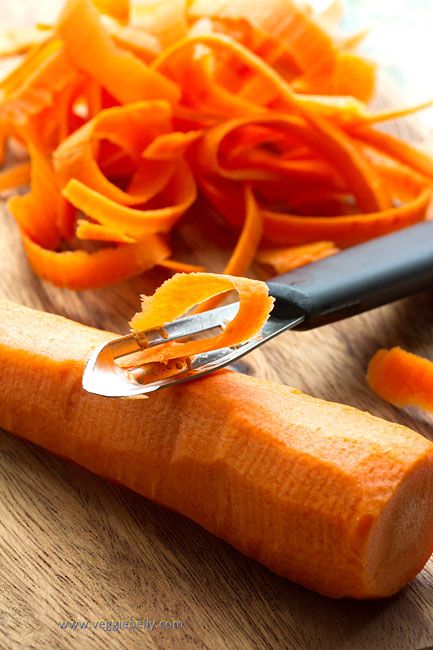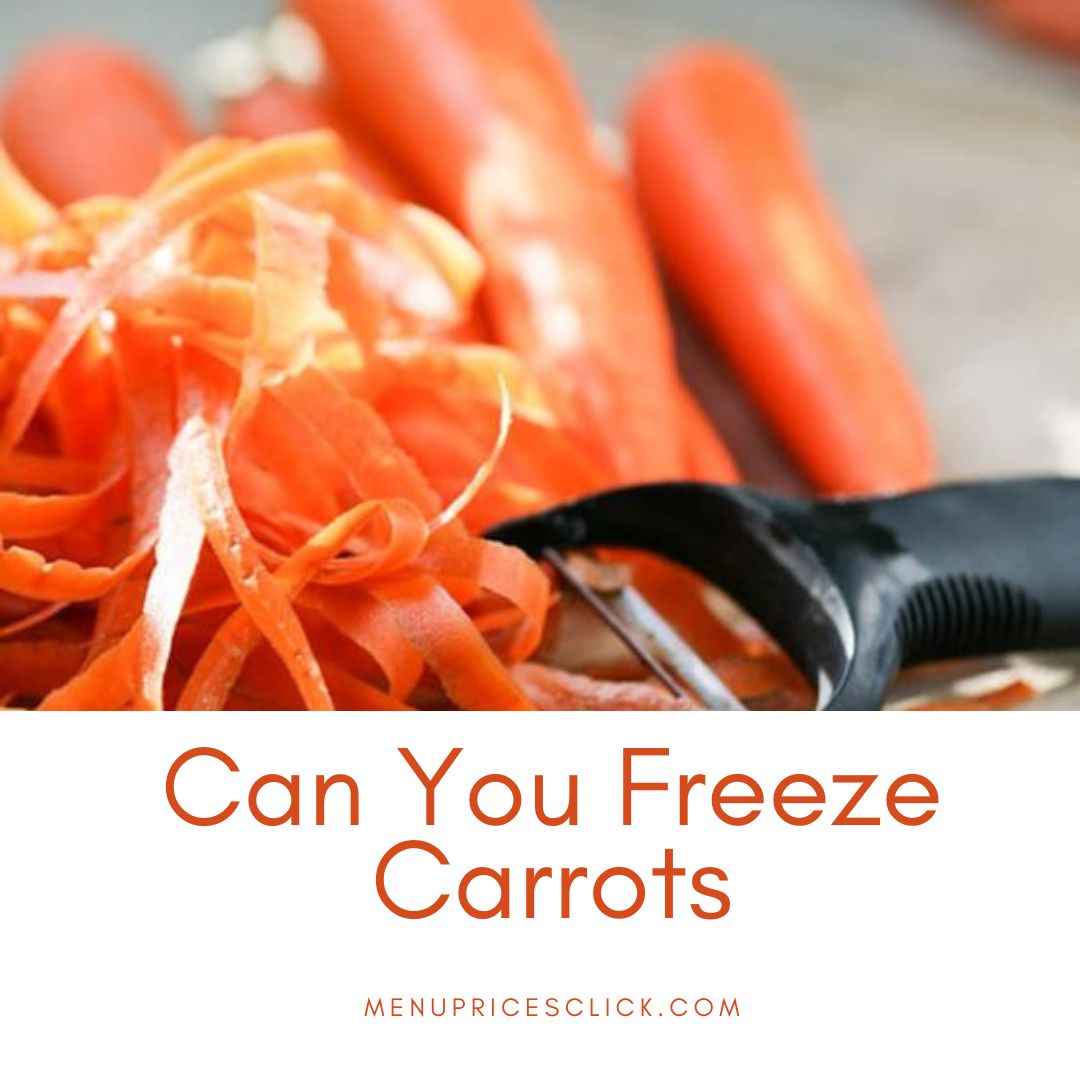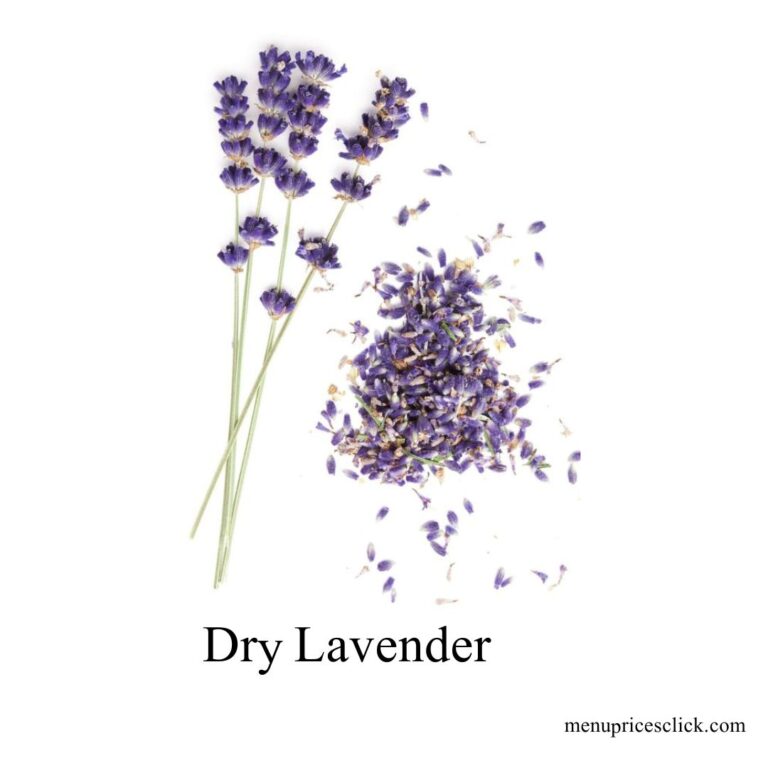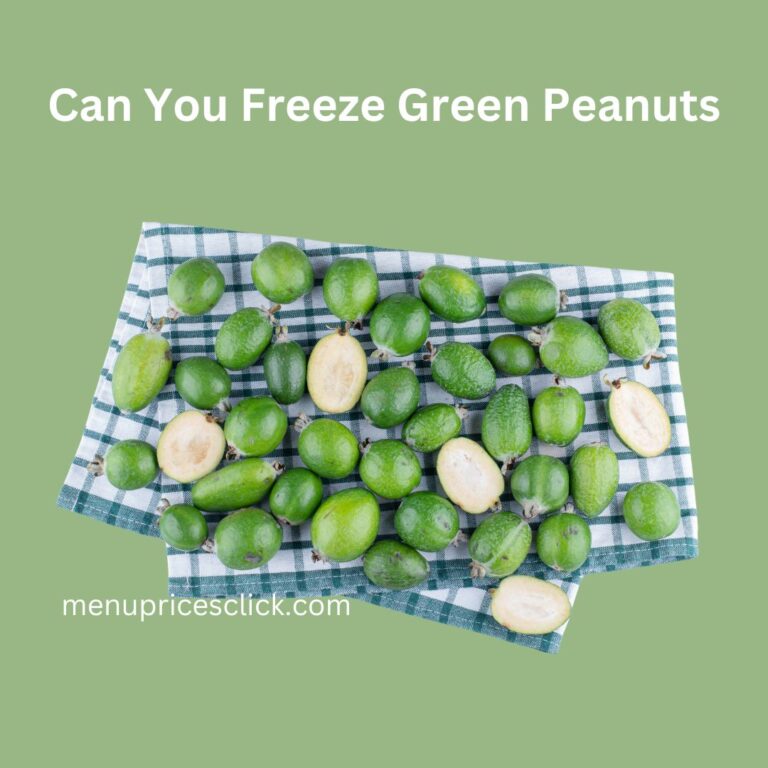Can You Freeze Carrots? A Comprehensive Guide
Carrots are one of the most versatile and nutritious vegetables you can add to your diet. Whether you enjoy them raw, cooked, or in soups and stews, carrots are a healthy staple in many households.
But what happens when you have a surplus of carrots and can’t eat them all before they go bad? Can you freeze carrots to extend their shelf life? The good news is yes! Freezing carrots is a great way to preserve their freshness and nutritional value for months. In this guide, we’ll walk you through everything you need to know about freezing carrots, from preparation to storage tips.
Why Should You Freeze Carrots?

Freezing carrots is a fantastic way to reduce food waste and make sure you always have a supply of this healthy vegetable on hand. Carrots can last up to 1-2 weeks in the refrigerator, but freezing them allows you to store them for up to 10-12 months. This makes them perfect for meal prepping or for when you want to enjoy seasonal vegetables out of season. Additionally, freezing helps lock in the vitamins and minerals in carrots, so they remain as nutritious as the day they were harvested.
Carrots are also incredibly easy to freeze, and the process doesn’t take much time. You don’t need any fancy equipment—just a few basic supplies like a knife, boiling water (for blanching), and freezer-safe containers. Freezing your carrots properly will help maintain their color, texture, and taste, so they’re ready to use whenever you need them.
Steps to Freezing Carrots the Right Way
Freezing carrots may seem like a simple task, but there are a few important steps to follow to ensure they freeze well and stay fresh. Let’s go over the process, step by step.
Step1. Selecting the Best Carrots for Freezing

The first thing you need to do is select high-quality carrots. Look for carrots that are firm, crisp, and free of blemishes. It’s important to use fresh carrots for freezing because older, limp, or damaged carrots may not freeze well and could affect the taste and texture once thawed. You can freeze both whole carrots and sliced or diced carrots, depending on how you plan to use them later.
Step 2. Cleaning and Peeling Carrots
Once you’ve selected your carrots, give them a thorough wash to remove any dirt or debris. It’s usually a good idea to peel them, especially if you plan to freeze them for long-term storage. Peeling is optional, but it can help ensure a smoother texture when thawed. If you prefer to leave the skins on, make sure to scrub them well to remove any remaining residue.
Step 3. Cutting Carrots into Desired Shapes
Before freezing, you need to cut your carrots into pieces. You can freeze them as whole carrots, but slicing or dicing them will make them easier to use in future dishes. Cut them into rounds, sticks, or small cubes depending on your preference and how you plan to use them later on. Keep in mind that smaller pieces freeze faster and are more convenient for quick meals.
Step 4. Blanching Carrots Before Freezing
One of the most crucial steps when freezing carrots is blanching. Blanching helps to preserve the carrot’s flavor, color, and nutrients. It also stops the enzymes that cause vegetables to spoil over time. To blanch carrots, follow these steps:
- Boil a pot of water.
- Add the carrot pieces to the boiling water and cook for about 2-3 minutes. If you’re freezing whole carrots, blanch them for 5 minutes.
- After blanching, immediately transfer the carrots into a bowl of ice water to stop the cooking process. This is called “shocking” the carrots.
- Once they’ve cooled, drain them and pat them dry with a clean towel. This step is important because excess moisture can lead to freezer burn.
Step 5. Packaging Carrots for Freezing
Once your carrots are properly blanched and dried, it’s time to package them for the freezer. To prevent freezer burn and ensure the best storage, use airtight containers or freezer bags. You can also use vacuum-sealed bags if you have a vacuum sealer, as these can keep the carrots fresh for even longer.
When packing your carrots, be sure to remove as much air as possible to prevent frost buildup. If using freezer bags, lay the carrots flat in the bag and press out excess air before sealing. Label each container or bag with the date so you can keep track of how long they’ve been frozen.
Step 6. Freezing Carrots
Now that your carrots are properly packaged, simply place them in the freezer. Carrots will freeze well at temperatures of 0°F (-18°C) or lower. Try to store the bags or containers in a flat position to avoid crushing the carrots. Carrots will typically last in the freezer for 10-12 months, though they can be safely eaten for longer if stored properly.
How to Use Frozen Carrots
When you’re ready to use your frozen carrots, there’s no need to thaw them beforehand. Frozen carrots can be added directly to soups, stews, casseroles, or stir-fries. If you’re using them in a recipe that requires them to be crisp, keep in mind that freezing can change the texture slightly. Frozen carrots may become a bit softer after cooking, so they’re best suited for dishes where texture is less of a concern, like soups or purees.
If you’d like to thaw frozen carrots, you can leave them in the refrigerator overnight or quickly defrost them in the microwave. For best results, use them within a few months of freezing to ensure the highest quality.
Common Mistakes to Avoid When Freezing Carrots
While freezing carrots is easy, there are a few mistakes you’ll want to avoid to ensure your carrots stay as fresh as possible.
- Not Blanching the Carrots: Skipping the blanching process can lead to a decline in flavor, color, and texture over time. Always blanch carrots before freezing to lock in their freshness.
- Overpacking Freezer Bags: Make sure not to overpack your freezer bags or containers. This can lead to uneven freezing and freezer burn. Leave some space in the bags to allow the carrots to freeze properly.
- Not Removing Air: Whether you’re using freezer bags or containers, it’s essential to remove as much air as possible. Air exposure can cause freezer burn, which affects the taste and quality of your carrots.
- Freezing Carrots Too Long: While carrots can last a long time in the freezer, their quality may start to decline after 10-12 months. For the best flavor and texture, try to use your frozen carrots within this time frame.
Final Thoughts: Can You Freeze Carrots?
Yes, you can definitely freeze carrots! Freezing carrots is a simple and effective way to preserve their freshness, taste, and nutritional value for months. By following the proper steps—selecting fresh carrots, blanching them, and packaging them correctly—you can enjoy delicious carrots even when they’re out of season. Whether you use them in soups, stir-fries, or as a side dish, having frozen carrots on hand is a convenient way to ensure you always have this healthy vegetable available.







